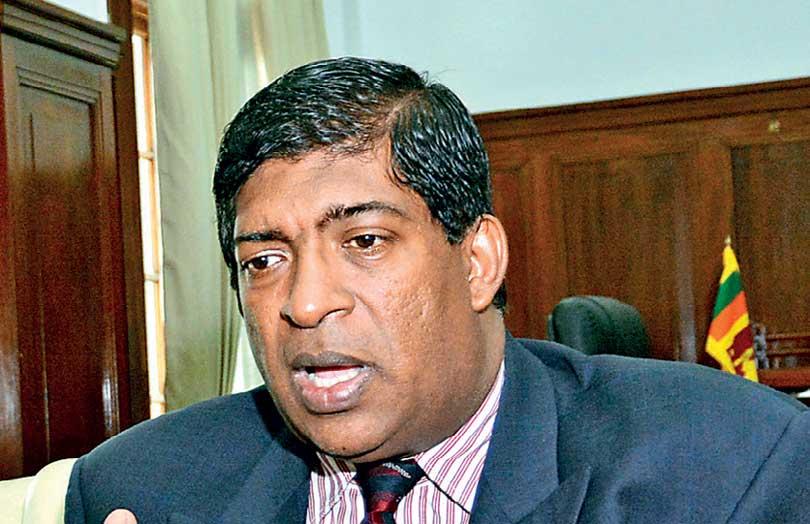21 May 2019 - {{hitsCtrl.values.hits}}

Controversy surrounds Power and Energy Minister Ravi Karunanayake’s move to award another 400MWs of emergency power to a Turkish company, Dailymirror learns.
Mr. Karunanayake recently managed to get Cabinet approval to award the 300MWs Kerawalapitiya Power Plant tender to a Chinese firm. The transaction is mired in controversy and challenged in a court of law by local bidder Lakdhanavi.
According to Lakdhanavi, it will cost an additional Rs.90 billion to the country. The battle on Kerawalapitiya 300MWs LNG Power Plant tender was finally won by the Power and Energy Ministry last week. The Cabinet gave in to Minister Karunanayake who fought tooth and nail to give the project to the more expensive Chinese company. Lakdhanavi’s lower cost proposal has finally been discarded by the Cabinet. Lakdhanavi has filed a fundamental rights case which is pending in Supreme Court.
Despite that, there is a tug of war between the minister and other Cabinet colleagues to award another 400MWs emergency power to a Turkish company of questionable reputation.
In response to recent power cuts, the ministry seems to have gone overboard to procure emergency power left, right and centre. Reportedly, the CEB’s reason for four-hour power cuts in March and April was a shortfall of about 300MWs power capacity. Dry weather that prevailed during late March and early April has somewhat eased now with the onset of inter-monsoonal rains.
The government also procured 171MWs of additional capacity by extending the retired Power Purchase Agreements of 120MWs Ace-Embilipitiya and Matara and 51MWs Asia Power-Sapugaskanda.
Moreover, the Ceylon Electricity Board (CEB) managed to repair the fault that occurred in the 60MWs barge-mounted power plant in the Port of Colombo. The CEB is also planning to commission 50MW of new generators it has imported from an Indian supplier. Thus, a whopping 381MWs is now in the system compared to the peak of the dry season when power cuts were imposed.
The total estimated cost of these new procurements to CEB can reach a whopping Rs.48 billion. The CEB has reportedly incurred a loss of Rs.87 billion in 2018. Its losses are likely to surpass Rs.120 billion in 2019. The CEB’s turnover is around Rs.220 billion. Management of the financial problems of CEB will be the biggest challenge to be faced by a new government next year in the wake of extra, highly-expensive emergency power procurement.
In March, the CEB called offers for acquisition of further 100MWs (later amended to 200MWs to accommodate the Turkish) of grid connected capacity. It gave time till May 2 for these offers to be made.
Strangely, Power and Energy Minister Ravi Karunanayake submitted to the Cabinet of ministers an offer made under this tender by a Turkish company called KarPower International DMCC to buy 400MWs of power for six months and sought approval to sign a Letter of Intent. The surprising fact is that the bids are still not closed but the minister wants this offer accepted.
The power plant is planned to be installed in the Dikkowita Fisheries Harbour and Galle Port. The power plants are mounted on ships called ‘PowerShips.’
19 Apr 2024 1 hours ago
19 Apr 2024 2 hours ago
19 Apr 2024 3 hours ago
19 Apr 2024 3 hours ago
19 Apr 2024 4 hours ago